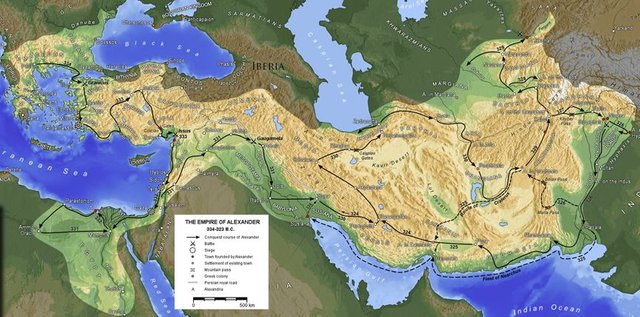The Persians had a much better starting position before the beginning of the battle. They were protected from encircling by the steep bank of the river, and Alexander's troops were exhausted by the long march. Nevertheless, or perhaps because of this, the Persians were surprised by the tactics and personal courage of Alexander: His aim was to push the cavalry into the center of the enemy's army to defeat the commander himself. If the leader had fallen, his hope the remaining troops would turn to the escape.
Alexander's courage in the assault bordered on foolishness: in the tight tumult, in which the riders barely had room to maneuver, Alexander was almost a victim himself: hit by a sword blow, only the courageous intervention of his bodyguard could kill the young king preserve. But eventually the Greeks managed to disperse the Persian cavalry and put the foot troops to flight.
That his first collision had almost ended in disaster did not seem to alarm Alexander. Instead of immediately penetrating further into the interior of the Persian Empire, Alexander set out to the southwest to calmly build a bridgehead. For this he had to conquer the Greek coastal cities that had previously been under Persian rule.
In fact, the greatest threat to Alexander was not the open confrontation with his opponent. That the Persians were not invincible, he had already proved on Granikos. However, if Darius avoided a collision, the Greeks in the vast country would go nowhere. The Great King was then able to calmly cut off Alexander's supply lines and wait for a favorable opportunity to annihilate his weakened opponent. A suggestion from his strategists, who proposed a scorched-earth policy, had, however, dismissed Alexander's happiness as irresponsible.
Therefore, it was important for Alexander, first of all, to liberate the Greek cities on the coast of Asia Minor. The Persian fleet was far superior to the Greek, and an overpowering opponent in the back could still be dangerous in the course of the campaign. The coastal cities therefore served a dual purpose: they served as a power base away from home and deprived the enemy fleet at the same time important ports of call.


Thanks for sharing some great history
Downvoting a post can decrease pending rewards and make it less visible. Common reasons:
Submit